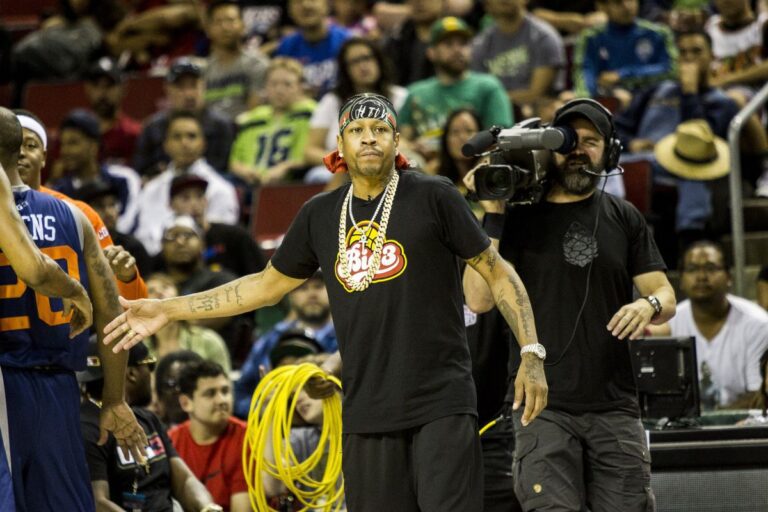Allen Iverson experienced one of the most embarrassing moments of his career in the early 2000s, when late NBA commissioner David Stern confronted him about his controversial hip-hop career in a face-to-face meeting.
The Philadelphia 76ers legend recently addressed the cringe-worthy encounter on the “Joe & Jada” podcast, describing how Stern methodically read his explicit “40 Bars” lyrics aloud during their sit-down discussion.
The rap icon, who goes by the pseudonym Jewelz, found himself in hot water after releasing 40 Bars in 2000. The song was widely criticized for containing what many considered sexist and homophobic content, prompting the league to intervene.
During their meeting, Stern took an unconventional approach to addressing the dispute. Instead of simply discussing the backlash, the commissioner pulled out a copy of the lyrics and began reciting them verbatim.
Advertisement
The incident occurred during a particularly tense period between Iverson and NBA brass. In addition to his musical pursuits, the Hall of Famer frequently clashed with league officials on a variety of issues, including his fashion choices in streetwear, which ultimately led to the implementation of an official dress code in 2005.
Iverson’s rap ambitions were part of a planned album, originally titled “Non-Fiction” and later renamed “Misunderstood.” However, the project was eventually canceled in late 2001 due to growing controversy surrounding his lyrical content.
“When I hear that now, I feel very embarrassed,” Iverson revealed.
The revelations come at a time of reflection for the basketball legend. This month, Iverson released his “Misunderstood” memoir and “Allen Iv3rson” documentary on Amazon Prime Video, giving fans a deeper look into his complicated relationship with fame and the pressures of professional sports.
While his hip-hop career never panned out as planned, Iverson’s impact on basketball culture remains undeniable. His crossover between sports and music paved the way for future athlete-entertainers, even if his own musical journey ended in embarrassment rather than success.
The documentary and memoir represent the latest attempt by Iverson to control his own narrative, following an uncomfortable meeting with Stern more than two decades ago that effectively ended his desire to record.


